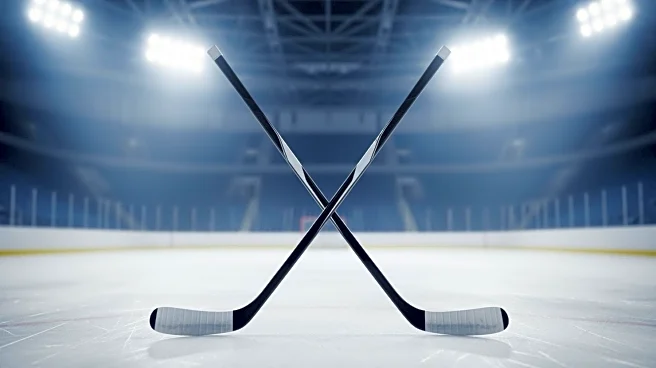What's Happening?
During a recent game between the Washington Capitals and the Columbus Blue Jackets, a controversial incident occurred involving Blue Jackets forward Mathieu Olivier and Capitals defenseman Declan Chisholm.
Olivier was penalized with a five-minute major for elbowing Chisholm, who left the ice holding his face. Despite protests from Olivier and Blue Jackets head coach Dean Evason, the referees upheld the penalty after reviewing the hit. The incident sparked a conversation between Capitals' Tom Wilson and Blue Jackets' Erik Gudbranson, with Wilson expressing that he would have faced severe consequences for a similar hit. The Capitals capitalized on the power play, scoring two goals and securing a 5-1 victory.
Why It's Important?
This incident highlights ongoing debates in the NHL regarding player safety and the consistency of penalty enforcement. Tom Wilson, known for his physical style and previous suspensions, used the opportunity to point out perceived inconsistencies in how penalties are assessed. The situation underscores the challenges referees face in maintaining fair play while ensuring player safety. The outcome of the game, influenced by the penalty, also demonstrates how such calls can impact team performance and standings, with the Capitals improving their season record significantly.
What's Next?
The NHL may review the incident further to determine if additional disciplinary action is warranted against Olivier. This could lead to discussions among league officials about refining penalty guidelines to ensure consistency. Teams and players might also engage in dialogue about maintaining sportsmanship and safety on the ice. The Capitals will look to maintain their winning momentum, while the Blue Jackets may need to address any internal issues arising from the game.
Beyond the Headlines
The incident raises broader questions about the culture of physicality in hockey and the balance between aggressive play and player safety. It also highlights the role of veteran players like Tom Wilson in advocating for fair treatment and the potential influence they have in shaping league policies. As the NHL continues to evolve, these discussions could lead to long-term changes in how the game is played and officiated.










